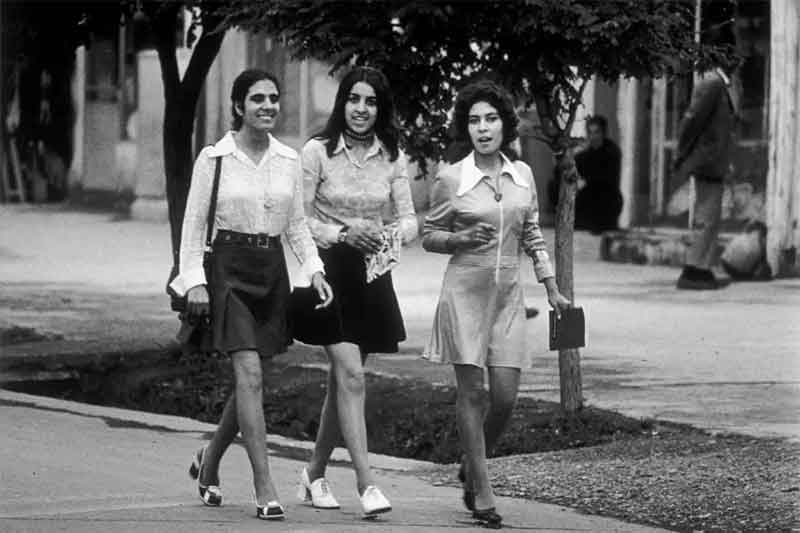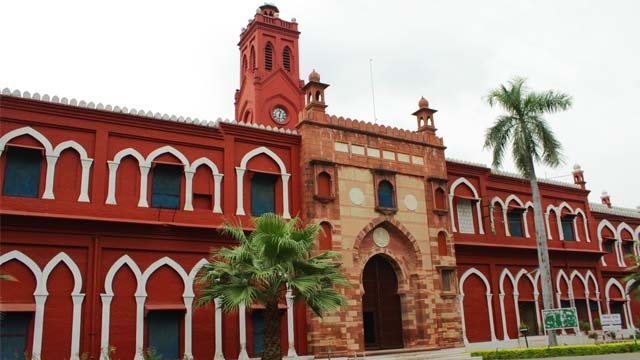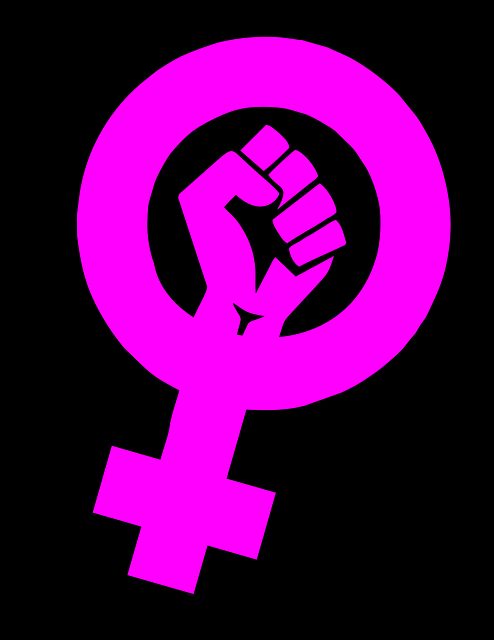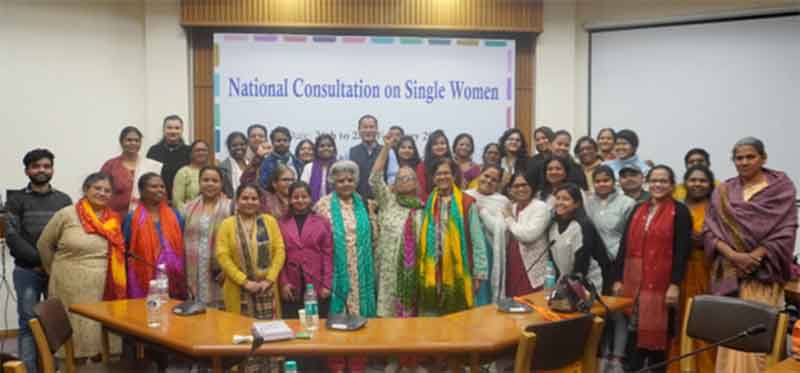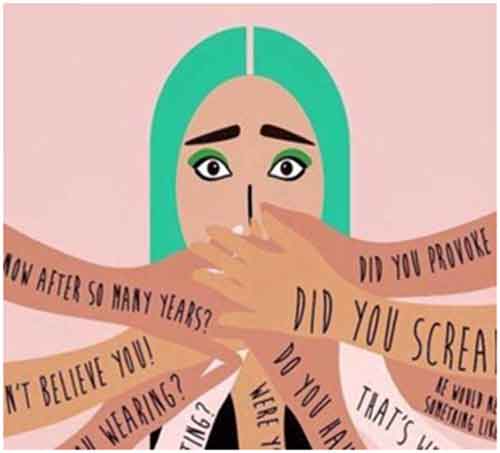
A particular scene in Paatal Lok, which is a series in Amazon Prime used a racist and a sexist remark on a Khasi woman calling her a “Nepali whore” (in Hindi). This was followed by uproar and petitions from Nepalies across India demanding to mute that particular line followed by an apology for the same[i]. This recent incident further triggers on the already underlining questions on racism, gender and stereotyping. Being a Nepali speaking woman from Sikkim which is in Northeastern part of India, and having spent almost 10 years in India’s major cities namely Kolkata, Bangalore and Delhi, it comes anything less than a surprise to me. As such movies and series are mere reflections of our society and thus of our own making. Being a woman from the North East, we face discrimination on two levels firstly being a woman and secondly for being considered as ‘lesser Indian’ or worst so ‘unwanted Indian’, mostly because we talk different, eat different and most importantly ‘look different’. Thus, how being a woman who is ‘different’ and her everyday struggles in a big city, be it as a student or as a working woman may not be of thought or of much interest to many. In this article, I would like to bring to light how intertwining systems of domination are experienced and expressed in an everyday life of a woman from Northeast India. The article will bring forth the concept of everyday racism which shows how systemic racism is reproduced in our daily taken-for-granted practices. Such an everyday practice normalises racism further through intersectionality of ethnicity, gender, economy, class, media and education.
Gendered Racism
Our everyday experiences demonstrate how convergent dimensions and systems operate simultaneously. It distinguishes between institutional and the interactional, between ideology and discourse, and between private and the public which merges to form a complex of social relations, interactions and situations. Racism and sexism are rooted in specific histories designating separate as well as mutually interwoven formations of race, ethnicity and gender.
Gendered racism works towards shaping the allocation of resources along racially and ethnically ascribed understandings of masculinity and femininity as well as along gendered forms of race and ethnic discrimination. As we see many women from the North East are preferred to for beauty salons, hospitality, airlines, call centres and healthcare services. Due to such aspects women from the Northeast coming to the cities are often stereotyped on those lines to further unequal segmenting on gender lines. Few women who work extra hours and stay up for night shifts without having to care about their own safety, often have had their characters questioned. The infusion of gender critique with racist images can place a strain on ethnic minority, women in achieving their independence as the internal gender critique can be externally abused in racist ways[ii]. Our independence over finance and mobility are used as tools to label us as being of low morale, sexually promiscuous and as someone welcoming harassment and violence.
According to the different ideologies and histories in relation to specific ethnic groups women are also stereotyped, objectified and labelled according to their lifestyle. They are questioned right from how they look, how they dress, what they eat, and how they live. Not just to blame the people from ‘mainland India’ our own internal silence, on the other hand, reconfirms the perceived legitimacy of the subordination of women within their own cultures. Few women choose to succumb to such gendered racism and stereotyping which only further perpetuates it. Being a very sensitive woman regarding such issues, I have chosen to speak up when encountered with racist remarks on several occasions. Be it in the streets of Delhi or Kolkata, male gaze and the racist slurs follow. However, most often I have been silenced and have been asked to simply avoid any conflict by my ‘own people’ so as not to create a ‘scene’ further. Thus, in a way rather than blaming the ‘other’ there are our ‘own people’ who have furthered such gendered racism against their own community. A video that went viral last year by a Delhi based Gorkha lawyer, who had out rightly questioned the character of ‘nepali women’ based in Delhi and their ‘lifestyles’ which according to her went against the ‘normative societal norms’. She out rightly questioned women and their food habits, their work timings and their attires, which she pointed out was ‘inappropriate’ and was bringing shame to the entire community. Such an act by someone who has been representing ‘our people’ on higher platforms is not something to be accepted, normalised or internalized.
Our ‘own people’ have also indulged in objectifying and sexualising us, where we are most often made to feel conscious of ourselves being a Northeastern woman. Their most common perception that the ‘other’ would mostly seek sexual favours from a woman coming from North East given their views of a Northeastern woman as being ‘sexually promiscuous’ is also an important aspect that has all the more furthered such gendered racism against us. The notion on how we are never to befriend many people from ‘mainland India’ as they are not usually ‘trustworthy’ enough, all the more questions our own idea of inclusiveness. The same inclusiveness which we seek and demand for ourselves, ironically only when we are encountered with such racist slurs on a national level. Being a woman I have been time and again warned to be vigilant with the ‘other’ and to be careful on how I portray and express myself lest I furthered the stereotype on how Northeastern women are. Such suggestion which usually comes from ‘our own people’ is directly or indirectly objectifying us, which further makes us question our own identity and our independence. Thus, what also needs to change alongside changing the ‘other’ is the approach of ‘our own people’ and their respect towards their own women.
Thus, there are experiences of both internal and external sexism, racism, humiliation and exclusion which are largely hidden from view. Every new experience of racism resonates and re-configures the accumulation of earlier experiences which women experience as soon as she leaves her home on a daily basis. The sexist slur in Paatal Lok is highly condemnable. This recent incident also saw the coming of solidarity among the Gorkhas across India. However, the question that still remains is whether such an uproar was to save their own ‘identity’ as being a ‘Gorkha in India’ and their contributions towards the nation, or was it to save the identity of a Gorkha woman. It is also time to reflect upon why the ‘other’ is so easily making such comments on a particular community. The incident has also triggered a debate on who are the Gorkhas, their history and their identity in India. However, what still remains to be debated on is the identity of a Gorkha woman which has actually been tarnished in the midst of patriarchy, misogyny and sexism coming both from the ‘other’ and ‘our own people’.
[i] https://www.wionews.com/entertainment/paatal-lok-controversy-gorkha-body-demands-removal-of-sexual-slur-from-the-series-299997
ii) McDuie-Ra, D. (2015). Is India Racist?’: Murder, Migration and Mary Kom. South Asia: Journal of South Asian Studies, 38:2, , 304-319.
iii) Haokip, T. (2020). From ‘Chinky’ to ‘Coronavirus’: racism against Northeast Indians during the Covid-19 pandemic. Asian Ethnicity , 1-21.
Rinzing Ongmu Sherpa is a Doctoral Candidate at the Centre for the Study of Social Systems (CSSS) at Jawaharlal Nehru University, New Delhi. Email Id- [email protected]
SIGN UP FOR COUNTERCURRENTS DAILY NEWS LETTER

